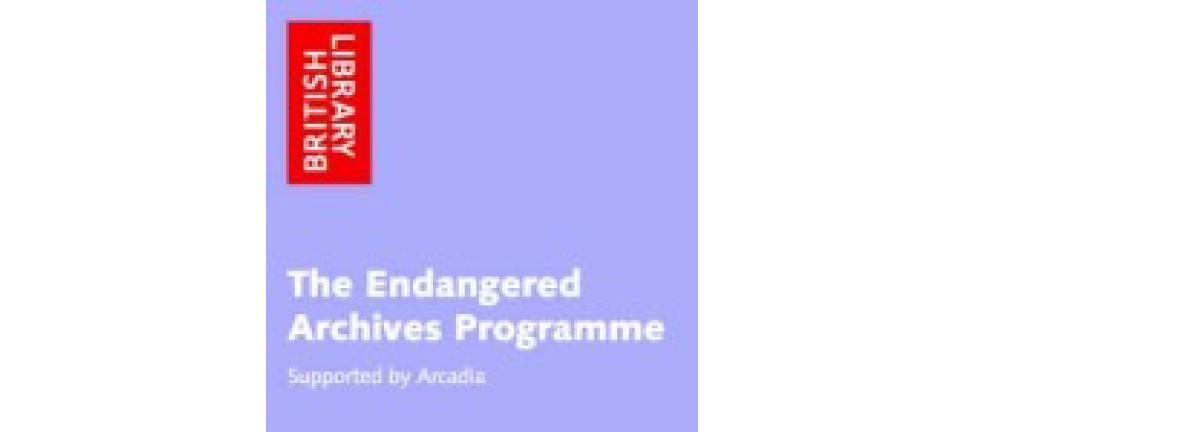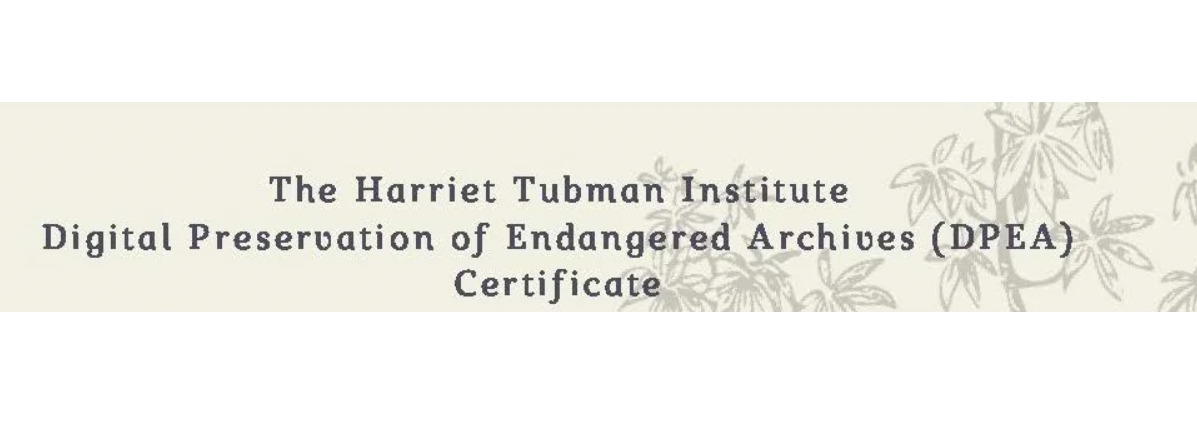British Library Endangered Archives Program
The Endangered Archives Programme (EAP) facilitates the digitisation of archives around the world that are in danger of destruction, neglect or physical deterioration. Since 2004, researchers working under the Programme have digitised over eight million images and 25,000 soundtracks. Archive types digitised include rare printed sources, manuscripts, visual materials, audio recordings. This continually expanding online collection is available freely through local archival partners, the EAP website and it is discoverable via the British Library catalogue.

Coordinator. "EAP782 - Preserving nineteenth-century records in the Sierra Leone Public Archives". British Library Endangered Archives Program. Sierra Leone (2016-2018).
Between 2016 and 2018, I worked as a project manager and research assistant for Professor Paul Lovejoy (York University) and Professor Suzanne Schwartz (University of Worcester) in the project EAP782 - Preserving nineteenth-century records in the Sierra Leone Public Archives. In the course of EAP782, 93 volumes have been digitised accounting for 43,268 images. The evidence digitised ranges in date from 1808 to 1898. This spans a period from the formation of the British Crown colony of Sierra Leone to the formation of the Sierra Leone Protectorate. Digital copies of the material from this project have been deposited at the Sierra Leone Public Archives. Access to the sources in electronic format will enable the archival staff to produce digital copies of records for consultation by visitors to reduce the possibility of further damage to the original sources. Copies of the material have also been deposited at York University and the University of Worcester.

Program Co-Director and organizer. "The Harriet Tubman Certificate for the Digital Preservation of Endangered Archives". The Harriet Tubman Institute. York University, Canada (2018).
The Harriet Tubman Institute DPEA Certificate is awarded in recognition of the successful completion of an organized program comprising modules in technical training, digital tools and the theoretical review of digitizing, archiving, and best practices in the preservation and preparation of historical materials for open source databases and research.